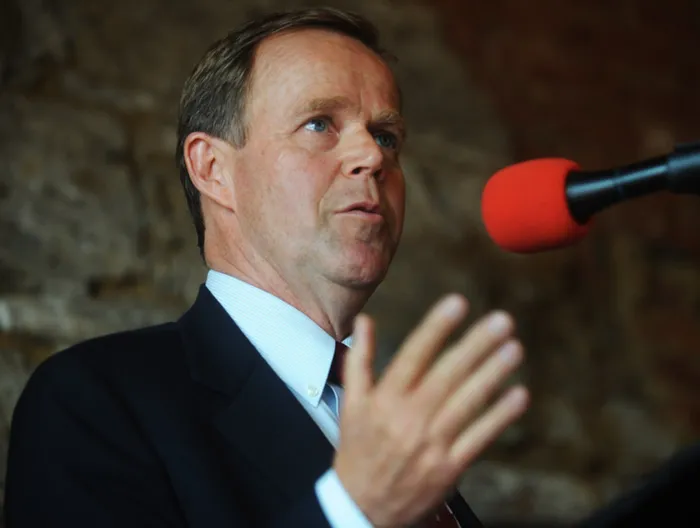Shell may lose interest in fracking if delays continue

Cape Town 110901- Shell South Africa's general manager for upstream operations Jan Willem Eggink speaking about the use of hydraulic fracturing "fracking" in the Karoo basin, and nationalisation of various industries in South Africa.Picture Cindy waxa.Reporter John Yield/Argus/ Melenie/Cape Times Cape Town 110901- Shell South Africa's general manager for upstream operations Jan Willem Eggink speaking about the use of hydraulic fracturing "fracking" in the Karoo basin, and nationalisation of various industries in South Africa.Picture Cindy waxa.Reporter John Yield/Argus/ Melenie/Cape Times
Donwald Pressly
Shell South Africa says if there are countless extensions of the moratorium on shale gas prospecting and ultimately exploration in the Karoo, it may lose interest in the project.
Upstream manager Jan Willem Eggink said if exploration did eventually occur, subject to evidence of sufficient shale gas supplies underground to make the exploration economically viable, it would only cover 1 percent of the area applied for in its licence application. It was envisaged that in five to 10 years, there would be 40 to 50 wells with a maximum of 32 well heads for a well pad. The well pad would be about 150m2.
However, if Mineral Resources Minister Susan Shabangu endlessly extended the moratorium, interest in the project, and willingness to spend about $200 million (R14m) during the exploration phase alone, would wane.
Speaking at the Cape Town Press Club yesterday, Eggink assured Karoo residents that the company would not compete with them for potable water supplies. Shell was committed to paying fair compensation to landowners to gain access to their land.
The area under contention extends from Sutherland, some 200km from Cape Town, to beyond Hopetown in the Northern Cape, to Colesberg in the east, roughly 750km from Cape Town.
Responding to concerns that hydraulic fracturing, or fracking, would be detrimental to the aquifers in the semi-desert region, which extends for 230 000km2 – 18 percent of South Africa’s surface area or 52 percent of the Karoo – Eggink said: “We’ve made a clear pledge: we will not compete for water in the Karoo during any stage of our operations.”
If the process of exploiting the resource was found to be viable, Shell would bring the water it needed from elsewhere. “If we proceed with the development phase, we will by that time have a better view of where the water can be sourced from. In addition we will review other solutions, such as importing water from rivers outside the Karoo.” He said this would probably initially be done by truck, but longer term plans could see water pipelines running to the wells.
Treasure the Karoo Action Group leader Jonathan Deal said there were examples in the US where Shell had damaged the environment, including water sources, during shale gas exploration, but Eggink said there were thousands of examples of fracking that did not cause damage.
One of the country’s main energy problems was that 90 percent of electricity produced was generated from coal, “more than any other industrialised country”, he said.
By drawing on potential, abundant domestic gas supplies which could be converted into electricity, “you can meet rising energy demand while maintaining energy security. Modern gas power plants generate up to 70 percent less CO2 than an old-style coal-fired plant and are also cheaper to build.” Because gas plants could be ramped up and down quickly “they make an ideal ally for intermittent energy sources like wind and solar”.
Pressed on whether Shell expected to export gas, he said the government was likely to focus on the energy needs of the domestic market.
Shell planned to drill at least six wells in the first three-year licence period, which could be extended for two periods of two years. “These wells will inform us whether the gas can be extracted in sufficient quantities to be viable. If these show encouraging results, we will probably want to drill more exploration wells.”